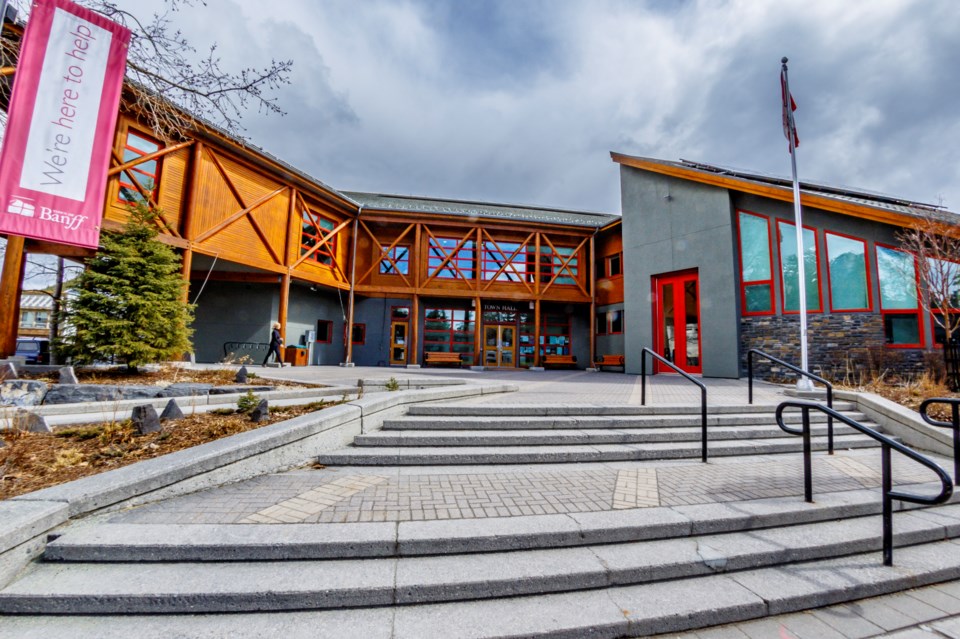BANFF – A pay bump for those Town of Banff employees that are currently underpaid for their work compared to other similar municipalities is on the way.
Based on a third-party review of the municipality’s total compensation package, the governance and finance committee told administration to include $821,366 in the 2023 budget to bridge the lagging wage gap and to look at a new formula for adjusting annual wages.
Officials say the lag in compensation compared to other municipalities and comparable markets occurred in large part because of what essentially amounted to a staff wage freeze during the COVID-19 pandemic as well as other market influences such as labour competition.
Coun. Chip Olver said staff supported council’s decision to take exceptional steps responding to the impacts of the pandemic on the community, which led to cuts in positions, layoffs, people taking forced leave and shared positions.
“They’ve stayed with us through this and it’s time for us to recognize that we’re not paying them what they should be paid,” she said during the Oct. 25 governance and finance committee meeting.
“The loyalty and their commitment to the Town of Banff, to the Banff community, I don’t think we should keep challenging that by underpaying them.”
A third-party consultant, P Walters Consulting, determined the Town of Banff’s compensation package is generally below competitive market rates, although the benefits package offered to staff is quite competitive.
It concluded the municipality tends to lag most notably in the areas of entry to senior professional administrative roles, supervisory and managerial positions in both administrative and operational roles, as well as entry-level operators.
As part of the review, local employers like the Banff Centre, Parks Canada, Banff and Lake Louise Tourism and Fairmont Banff Springs participated in a wage survey, In addition, the municipalities of Canmore, Airdrie, Cochrane, High River, Jasper and Okotoks and Sylvan Lake took part.
A competitive compensation package is key to attracting and retaining qualified employees – and consultant Pamela Walters said some staff who had left their jobs indicated wages and the high cost-of-living in the tourist town were main reasons behind their departure.
Walters said the cost of turnover in Canada is currently 1.5 times the annual salary of professional, technical, managerial and leadership positions, which includes costs like job postings, training and overtime during vacancies for example.
“Of the departure packages returned, those indicating that they were departing from the Town of Banff due to wage or cost of living concerns was reflected at a rate of about 7.69 per cent from 2018 to 2021,” she said.
Couns. Hugh Pettigrew and Ted Christensen did not support setting aside the $820,300 at this time.
“I do agree we need to pay the staff what they’re worth and I would be the first to go along with that,” said Pettigrew.
“I am not too sure we can afford this ask without looking at some cuts somewhere else.”
Coun. Grant Canning indicated interest in looking to postpone some capital projects next year in order to pay for the wage gap for staff.
“If we’re going to spend additional money, I think this is the year to spend it on our staff, not on new service levels requests,” he said.
“I think it’s even worthwhile looking at the capital budget as well.”
Mayor Corrie DiManno said the Town of Banff needs to maintain an organizational culture where the compensation package remains fair and competitive.
She said a decision to move away from the council-approved formula for wage adjustments in 2021 and 2022 meant close to $1.2 million in wages were saved over those two years as part of an effort to reduce costs during the pandemic.
“We all know quite intimately that Banff has a higher cost of living compared to other municipalities, especially when you look at trying to purchase a home,” said the mayor.
“We need to do our due diligence to attract, reward, motivate and retain talent in this competitive market, especially when we understand Banff’s affordability challenges so well.”
Wages and benefits represent approximately 40 per cent of the Town of Banff’s annual operating budget. Employees are also set to get a 5.4 cost of living increase this year.
The Town of Banff’s compensation philosophy targets the 50th percentile, which means 50 per cent of the comparable organizations pay more and 50 per cent pay less than the municipality’s median rate for the positions in each job grade.
Coun. Barb Pelham got the committee’s support to have administration return at service review with options to phase wage ranges to the 55th percentile over five years.
“Our community needs these people and Town of Banff needs to reimburse them appropriately and we need them to know that we are a worthy employer going forward,” said Pelham.
Walters said considerations that are directly impacting an organization’s ability to effectively attract and retain talent is the shrinking national and Alberta labour pool with the departure of both the ‘traditionalist or veterans” and “baby boomer” demographic groups from the workforce.
She said approximately 40 to 60 per cent of these two demographics in North America are retiring or eligible to retire.
“According to Alberta’s occupational outlook from 2021-30, it is expected that the majority of the baby boomers will have left the labour mark by 2028,” said Walters.
“The bottom line: the decreasing talent pool will continue the labour crunch and is likely an ongoing trend that organizations will need to address going forward.”




